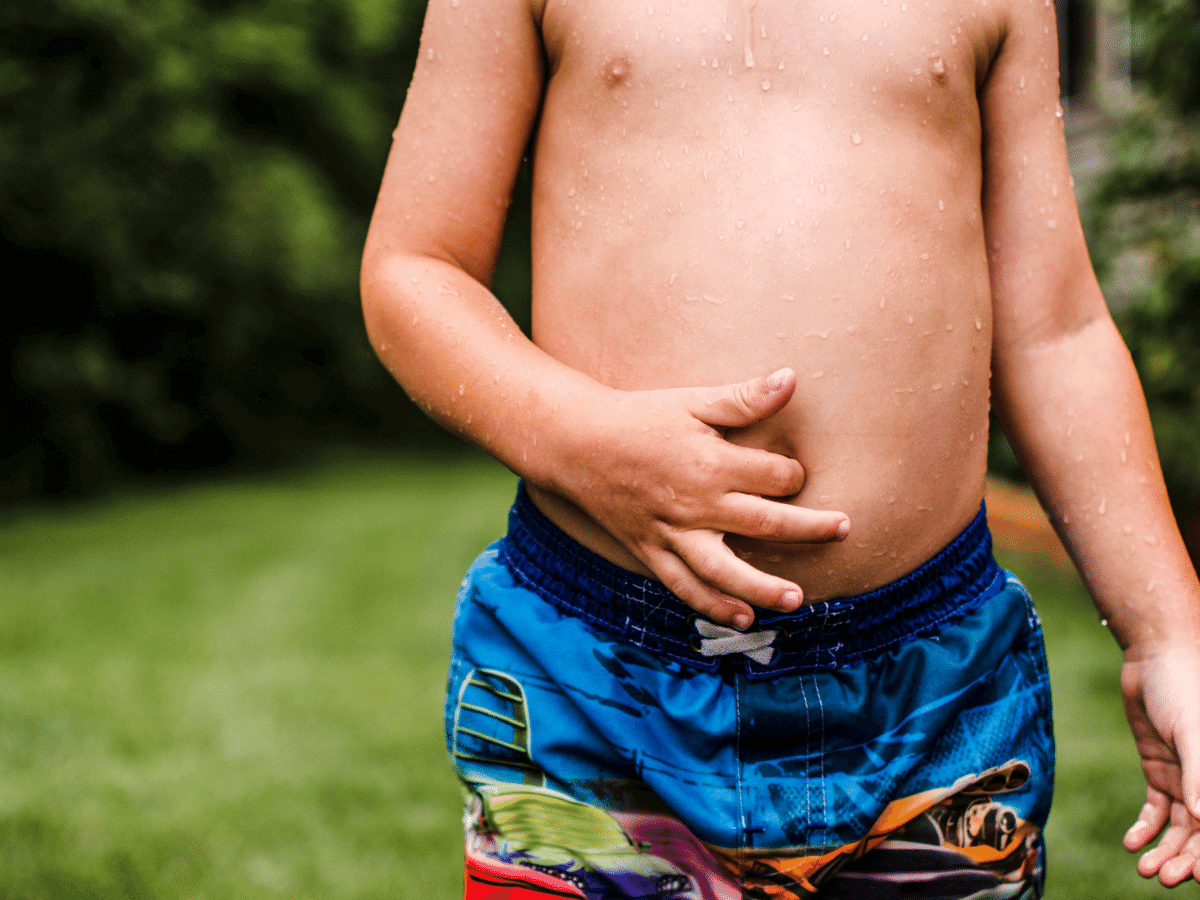Why Does My Belly Button Smell? Why and How to Clean It.

Your belly button (or navel) is the scar where your umbilical cord was attached when you were in the womb. While it doesn't have any function after you're born, you still need to take care of it like you do the rest of your skin.
Since your navel is pretty far from your nose, if you can detect an odor coming from it, that's something you should investigate. Even if you don't smell it but others close to you can, you should take action.
What makes a belly button smell, and what can you do about it? This article explains.
What Causes Belly Button Odor?
There are three primary causes of belly button odor.
Accumulation of Dirt and Debris
Simply put, a belly button full of material will eventually start to smell. And that material can be things other than belly button lint. Your belly button is home to many types of bacteria, fungi, and other germs. Combine that with dead skin cells and the natural oils from your skin, and you've got the recipe for an unpleasant odor.
Infection
As noted above, your belly button has its own dark, warm, moist ecosystem of microorganisms. If any of them grow out of control, you can develop an infection. People with diabetes mellitus may have a higher risk of developing an infection in their belly button area, as do patients who recently had surgery in that area, such as to correct an umbilical hernia. Having a belly button piercing also increases your risk of infection.
Cysts
It's possible to develop different types of cysts in your belly button. These include epidermoid cysts (which develop on the top layer of skin), pilar cysts (which start near a hair follicle), and sebaceous cysts (which are less common and develop in sebaceous glands).
Is It Normal to Have Belly Button Gunk?
Having what people often refer to as "gunk" in your belly button is entirely normal. In fact, given the belly button's shape and location, it would be surprising if it didn't collect skin cells, lint, and other gunk ingredients.
The key is removing the material. If regular bathing doesn't clean your belly button sufficiently, you can simply pay a little extra attention to it, as described below.
What Are the Symptoms of a Belly Button Infection?
There are two types of belly button infections. Bacterial infections are caused by harmful bacteria (often Staphylococcus or Streptococcus strains) that get into your belly button and grow out of control.
Fungal infections occur when you have an overgrowth of yeast (commonly Candida) or other fungi in your belly button.
What are the symptoms of a belly button infection? With either type of infection, the symptoms develop in or around the belly button and can include:
- Redness
- Swelling
- Pain or tenderness
- Odor
- Itching
- Discharge
Belly button infections, like infections anywhere on the body, can also cause a fever.
If you develop any of these symptoms and have questions like, "What does a belly button yeast infection look like?" or "How do I know if my belly button infection is fungal or bacterial?" your doctor can answer them.
They'll describe how they identify belly button infection types, explain that belly button discharge is normal with an infection, and tell you how to address your infection. Treatment may include ointments, medications, or simply regular cleaning and monitoring to see if the belly button infection goes away on its own.
How to Prevent Belly Button Odor
The best way to prevent belly button odor is to keep the area clean. You likely remove some of the dirt and debris when you shower or bathe. However, if you notice an unpleasant smell, you may need to consider deep cleaning techniques for your belly button.
That's really no more than putting some extra attention into cleaning it. To do that, apply antibacterial soap to a washcloth or your finger and gently rub your belly button in the shower or bath.
It's important to be gentle, as vigorous scrubbing can irritate the skin, which may increase your risk of infection. If your belly button is particularly dirty, dip your finger into some table salt and gently massage your belly button before rinsing it thoroughly.
When you get out of the shower, be sure to pat your belly button dry.
It's also a good idea to avoid using lotions or other skincare products around your belly button. They may create an environment that increases the risk of infection.
When to Contact Your Baptist Health Doctor About Your Smelly Belly Button
Most belly button odors resolve after a few gentle but thorough cleanings. You should contact your doctor if that doesn't help or if you have any of the infection symptoms noted above.
Belly button cysts can be drained, injected with medication, or removed as needed. Your doctor will also recommend that you avoid wearing tight clothing that can irritate your belly button area, particularly while you're being treated for a belly button issue.
If you don’t have a Baptist Health doctor, you can find one using our online provider directory.
Next Steps and Useful Resources:
Find a Provider Near You
Start a Virtual Visit
9 Essential Fall Skin Care Tips
Why Can I Feel My Heartbeat in My Stomach?



.jpg?rev=9ddf6790805749b994e44780efdfb13c)